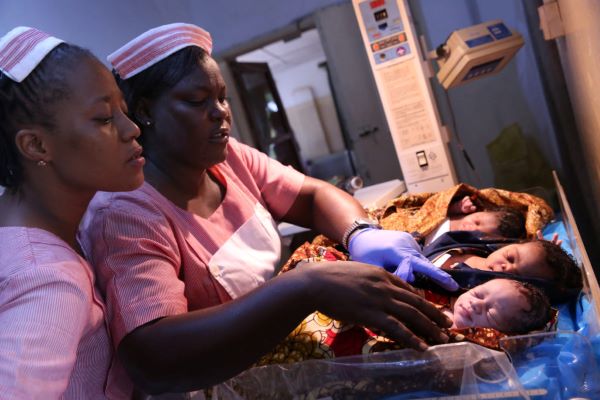The Federal Ministry of Health and Social Welfare launched the Maternal Mortality Reduction Initiative during a press conference in Abuja, marking 2024 Universal Health Coverage Day.
The initiative, aimed at reducing maternal deaths across the country, promises to provide free emergency care at select healthcare facilities nationwide.
Coordinating Minister of Health and Social Welfare, Professor Ali Pate, highlighted the achievements of the federal government in expanding healthcare access.
He revealed that over 200 primary healthcare centers have been completed, with another 300 in progress, and 2,000 facilities are being supported by state governments.
This infrastructure development aims to strengthen the country’s healthcare system, particularly in rural and underserved areas.
In addition to the maternal mortality initiative, Professor Pate expressed his satisfaction with the National Health Insurance Authority scheme, which enrolled 2 million Nigerians in just one year.
He emphasized that had this pace continued for the last two decades, over 40 million Nigerians would now be covered by health insurance.
The Minister of State for Health and Social Welfare, Dr. Iziaq Salako, stressed the collective responsibility to ensure the sustenance of universal health coverage (UHC), adding that quality healthcare and health insurance were a top priority for the current administration under President Bola Tinubu.
The World Health Organization (WHO) Country Representative, Dr. Walter Mulombo, commended the government’s efforts, especially the implementation of the NCA-65 activity and the progress in healthcare financing.
Dr. Gafar Alawode, Co-Convener of the Nigeria UHC Forum, urged the government to implement deliberate strategies to expand health insurance coverage to at least 50% of the population, citing the importance of innovative financing.
Despite these strides, the country continues to face alarming maternal mortality statistics.
Nigeria accounts for about 20% of global maternal deaths, and the maternal mortality ratio (MMR) stands at 814 per 100,000 live births.
According to the World Health Organization, Nigerian women face a 1 in 22 lifetime risk of dying during pregnancy, childbirth, postpartum, or post-abortion, a stark contrast to developed countries, where the risk is 1 in 4900.
Earlier this month, the United Nations Children’s Fund (UNICEF) reported that 60% of maternal, newborn, and child mortality in Nigeria results from lack of access to quality healthcare services.


